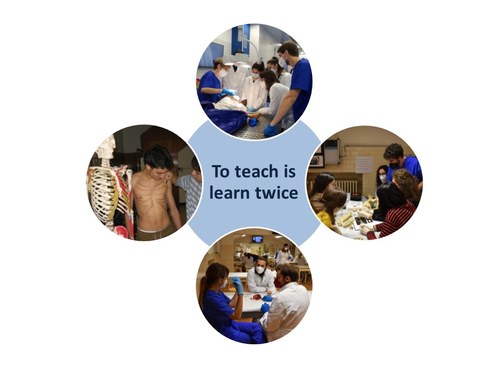
Neer-peer Teaching (NPT) is an educational methodology in which older students play the role of tutors and impart knowledge and experience to their younger colleagues or tutees. The key element on which NPT is based is social and cognitive congruence: tutors and tutees share the same linguistic heritage and socio-cultural context. Since 2003, the Institute of Human Anatomy has adopted an NPT program in which “senior” medical students from 3rd-6th years teach and tutor younger students in the different Human Anatomy laboratories (locomotor apparatus, surface anatomy, and septal anatomy). In 2021, we decided to administer a questionnaire to all those tutored from 2003-2021 in order to assess the effectiveness and impact of this program from the tutors' perspective. The overall perception was largely positive and the main benefits reported include: consolidation of knowledge, improved academic performance, communication and organizational skills, increased self-esteem and motivation to study. The skills acquired or enhanced through the tutoring experience are, moreover, found to be useful and expendable in the professional future. In the future, we aim to analyze more comprehensively the impact of this experience on the choice of graduate school and, in addition, to extend the survey on the effectiveness of NPT to tutees as well with the goal of continuous improvement of the program.